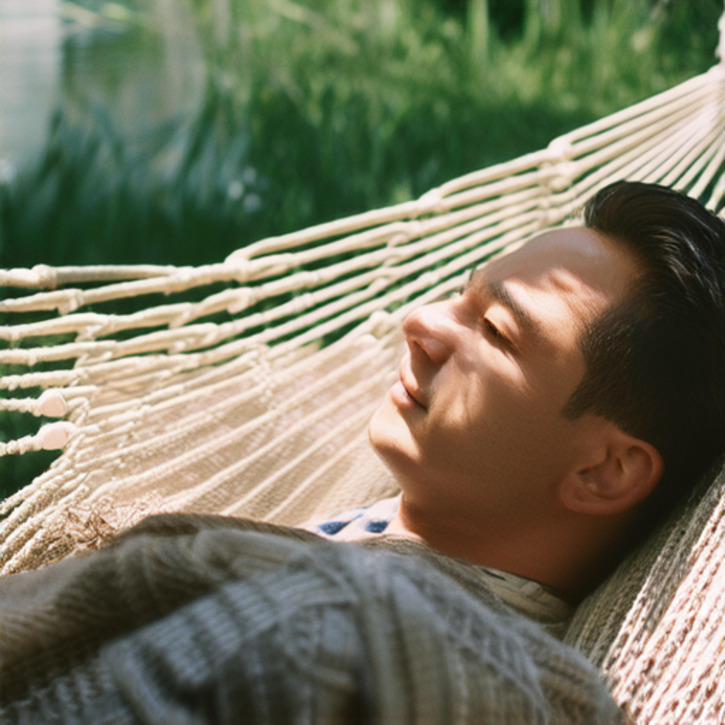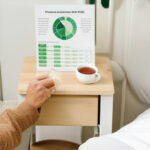What’s the Best Non Addictive Sleep Aid? Experts Reveal Their Favorites

Introduction: Discovering the Best Non-Addictive Sleep Aid for a Restful Night
In our whirlwind world, catching a good night’s sleep has become something like finding buried treasure. We’re all on the lookout for a dependable solution that eases our minds into slumber without the fear of getting hooked. As more of us become conscious of maintaining long-term wellness and respecting our natural sleep rhythms, traditional, habit-forming sleep meds are gradually being pushed aside. Nowadays, it's not about a magic fix—it’s about nurturing a deep, restorative sleep cycle that lasts. This shift in focus really highlights a refreshing change in how we approach rest and recovery.
With conversations increasingly centered on holistic health, it’s no wonder that more people are seeking out alternatives that steer clear of dependency. So, what exactly makes something the best non-addictive sleep aid? The secret lies in gently coaxing your body into its natural cycle without creating a reliance. Whether you’re struggling with the occasional sleepless night or hoping to overhaul your sleep altogether, understanding these options might just open the door to a healthier lifestyle.
Imagine a nightly routine that boosts your overall health, brightens your mood, and gives you a burst of productivity the next day. Picture drifting off as natural soundscapes or soothing herbal blends help calm both your mind and body. The true non-addictive sleep aid works in harmony with your natural rhythms—no harmful side effects, no habit-forming risks. Stick around as we dive into expert insights and practical tips that could completely transform your rest.
Understanding Sleep Aids: Myths and Facts Behind the Best Non-Addictive Sleep Aid
There’s a fair share of tall tales about sleep aids, especially those touted as non-addictive. Some folks worry that any sleep helper is bound to create a dependency or that “natural” simply means less effective compared to synthetic alternatives. Truth be told, recent research is turning these ideas on their head. Studies show that non-addictive sleep aids—be they herbal supplements or alternative therapies—can genuinely boost sleep quality without trapping you in a cycle of dependency.
We’ve long heard the myth that “natural” equals less potent, but modern research is proving otherwise. Many herbal remedies pack specific compounds that play beautifully with your body’s sleep mechanisms. Take certain herbal extracts that interact with your GABA system, for instance—they help calm overly active brain circuits. This ongoing research is carving exciting new pathways for safe, long-term sleep solutions.
When professionals look at the best non-addictive sleep aids, they appreciate those that harness nature’s bounty while upholding rigorous safety standards. Experts in sleep medicine often suggest exploring natural remedies and lifestyle shifts before diving into commercial sleep aids. By debunking myths and focusing on the solid science behind these options, we can make well-informed choices that are based on facts and not mere fads.
Natural Supplements: Expert-Recommended Best Non-Addictive Sleep Aid Options
When it comes to natural supplements, time-tested options like chamomile, valerian root, and passionflower often steal the spotlight. These herbal heroes are celebrated for their gentle, sedative effects—perfect for putting worry at bay on long, stressful nights. Their naturally soothing properties help support your body’s ability to relax and maintain healthy sleep cycles, earning them high praise from experts who recognize them as top non-addictive sleep aid choices.
That said, it’s crucial to get the dosage right. While these remedies have been used safely for centuries, they do require some thought regarding how much to take, potential interactions with other medications, and individual body responses. Experts generally recommend starting low and watching how your body reacts before making any adjustments. With the proper guidance, these natural aids can seamlessly become a part of an effective, balanced sleep routine.
Lifestyle Adjustments: Complementing the Best Non-Addictive Sleep Aid Approach
Beyond supplements, small lifestyle tweaks can go a long way in improving sleep quality. Simple habits like sticking to a regular sleep schedule, creating a calming pre-bedtime routine, and keeping screens at bay make a huge difference. A dark, cool, and quiet room is the perfect setting for a peaceful night’s sleep. These practices dovetail beautifully with non-addictive sleep aids, working together to help you achieve genuinely restorative rest.
The benefits stretch beyond just physical health too—a solid sleep routine can significantly improve mental clarity and emotional wellbeing. Whether it’s progressive muscle relaxation, meditation, or just some deep, mindful breathing, these techniques can serve as the perfect prelude to a serene night. Even jotting down your thoughts before bed can help clear any lingering worries. Combined with trusted sleep aids, these lifestyle adjustments nurture a multi-faceted approach to better sleep.
Consistency is key. Establishing a regular sleep routine along with a supportive sleep environment can truly transform your nights. When you blend these smart daily habits with a reputable non-addictive sleep aid, you're setting yourself up for long-term success—merging sound science with practical, everyday changes.
Over-the-Counter Alternatives: Choosing the Best Non-Addictive Sleep Aid Products
For many, over-the-counter (OTC) sleep aids are a convenient go-to strategy. These products—often hailed as some of the best non-addictive options—typically feature ingredients like melatonin, magnesium, and herbal extracts known for their calming benefits. They’re designed with safety in mind, easing you into sleep without setting the stage for dependency. Just be sure to read the labels and understand how each ingredient plays its part.
Knowing what’s in your sleep aid is key. Melatonin, for example, signals your body that it’s time to wind down, while magnesium helps relax muscles and nerves. Many users have found that a mix of these natural components offers a well-rounded boost to sleep quality. The absence of harsh chemicals or any reliance on quick fixes is what makes these OTC options stand out as effective, non-addictive sleep aids.
Finding the right product for you might take a bit of trial and error, and sometimes a chat with a healthcare professional. In a market overflowing with choices, focusing on quality and transparent labeling is essential. Starting with a lower dose and gradually adjusting allows you to gauge your body’s response while keeping an eye out for any possible side effects or interactions with other medications. A cautious approach ensures your sleep aid is both safe and effective.
Prescription and Professional Guidance: Aligning with the Best Non-Addictive Sleep Aid Strategy
While natural and OTC sleep aids are riding high in popularity, there are times when prescription options might be your best bet—especially if sleep issues run deep or are tied to other health conditions. Consulting a healthcare professional can bring tailored insights, helping determine if a prescription, non-addictive option might be necessary for your unique situation. Their guidance in tailoring a sleep plan that balances both effectiveness and long-term safety is invaluable.
Regular monitoring and open dialogue with your doctor are key parts of any effective sleep strategy. Even if you’re opting for natural or OTC aids, professional oversight is a smart move, particularly if sleep disturbances keep popping up. Doctors may suggest periodic reviews of your sleep patterns and overall mood to ensure that your routine is on track. This collaborative approach blends modern medical wisdom with natural remedies, ensuring you get the most out of your sleep aid without risking dependency.
Ultimately, balancing effectiveness with a non-addictive approach is an art that often benefits from professional support. Merging lifestyle changes, medical guidance, and when needed, prescription aids into a cohesive plan is the best route to sustainable, quality sleep. Working hand-in-hand with your healthcare provider lays the foundation for lingering improvements in your sleep health.
Conclusion: Embracing Expert Favorites for the Best Non-Addictive Sleep Aid
Navigating the ever-changing landscape of sleep aids reveals that the true secret is balance and thoughtful choices. The best non-addictive sleep aid isn’t about leaning solely on medications—it’s about blending robust scientific research, expert advice, and simple lifestyle tweaks. Along this journey, we’ve debunked myths, explored the science behind natural formulations, and weighed OTC and prescription options in the pursuit of genuinely restorative sleep.
True progress in sleep begins when you support your body’s natural rhythms. Whether it’s integrating herbal supplements like chamomile





